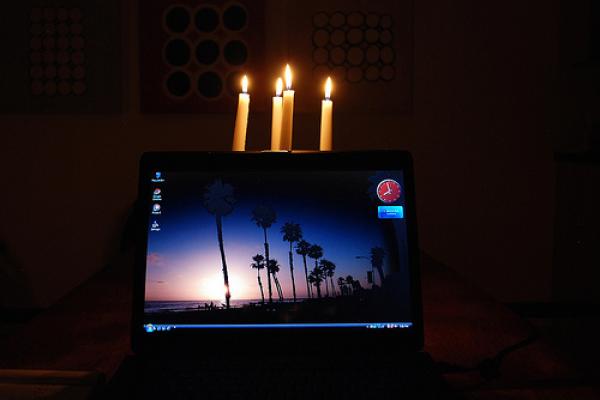You’re on the Internet right now.
Maybe you’re on your smartphone, or your iPad, or even your desktop at work (it's OK, your secret's safe with us). No matter your choice of access media, if you’re reading this, you’re on the Internet.
Most of us take Internet access for granted. (Who can remember life before Google?) A seemingly endless, free-to-all source of information, knowledge and distraction, the Internet drives and facilitates transactions both inconsequential and global, simple and complex.
Certainly the Internet has a seedy underbelly, from spammers and basement-dwelling sport hackers to illicit businesses and toxic enterprises.
But who polices it? Who’s the Internet Sheriff?
Congress has recently tried to ratchet up its role. The House version, the Stop Online Piracy Act (SOPA), works in tandem with the Senate’s PROTECT IP Act (Preventing Real Online Threats to Economic Creativity and Theft of Intellectual Property Act (PIPA). Supporting lawmakers putting their fingers a little deeper into the pie by proposing to give the Justice Department the ability to seek court orders against websites and companies who enable (or are accused thereof) of copyright infringement. Seems like a reasonable idea.
Protecting intellectual property is a worthy cause. Companies such as the Motion Picture Association of America and the Recording Industry Association of America are huge supporters, along with Viacom and Nike.
What they support is the fight against copyright violations. But what they’re getting amounts to little more than blatant Internet censorship.
The line between monitoring and censoring is razor-thin. SOPA brings to light First Amendment concerns, and free speech advocates are up in arms.
The White House released a statement recently about SOPA which said in part:
“While we believe that online piracy by foreign websites is a serious problem that requires a serious legislative response, we will not support legislation that reduces freedom of expression, increases cybersecurity risk, or undermines the dynamic, innovative global Internet.”
Opponents of SOPA include Google, Yahoo! YouTube, Reddit, Facebook, Twitter, eBay, Wikimedia Foundation, and a slew of other Web giants.
Tomorrow (Jan. 18), Reddit and Wikipedia are planning a blackout to protest SOPA, and while Twitter, Facebook, and Google have not signed on the black out, you can count on escalating language and heated debate.
Here are a few articles that expand on the story for a little further reading. You might want to try the links sooner than later. By tomorrow — as more websites sign on to the blackout — they might not work.
Click while you still can.
UPDATED LINKS AS OF 2:45 P.M. WEDNESDAY 1/18:
Huffington Post: Senators Schumer and Gillibrand (key proponents ) backing down on SOPA in the midst of protests from the NYC tech community.
LATimes: Perspective from the entertainment industry, key originators of SOPA.
POLITICO: Senator Marco Rubio, R- FL, a co-sponsor of PIPA, has pulled his support
Gawker: What Even Non Nerds Need To Know About SOPA
Forbes: Key Supporters Drop Out from SOPA Battle
LINKS FROM TUESDAY 1/17:
BBC: Wikipedia joins web blackout in SOPS protest
CNN: SOPA Explained: What it is and Why it Matters
Mashable: White House Responds to Anti-SOPA Petition
ABC News: Wikipedia Blackout: Websites Wikipedia, Reddit, Others Go Dark Wednesday to Protest SOPA, PIPA
Huffington Post: Google Joins Online SOPA Protest, Activists To Picket Schumer, Gillibrand
Red Eye Chicago (Tribune): Join the SOPA Blackout Tomorrow
Carrie Adams is the Communications Associate for Sojourners. Follow Carrie on Twitter @MadameCAdams.
Got something to say about what you're reading? We value your feedback!
